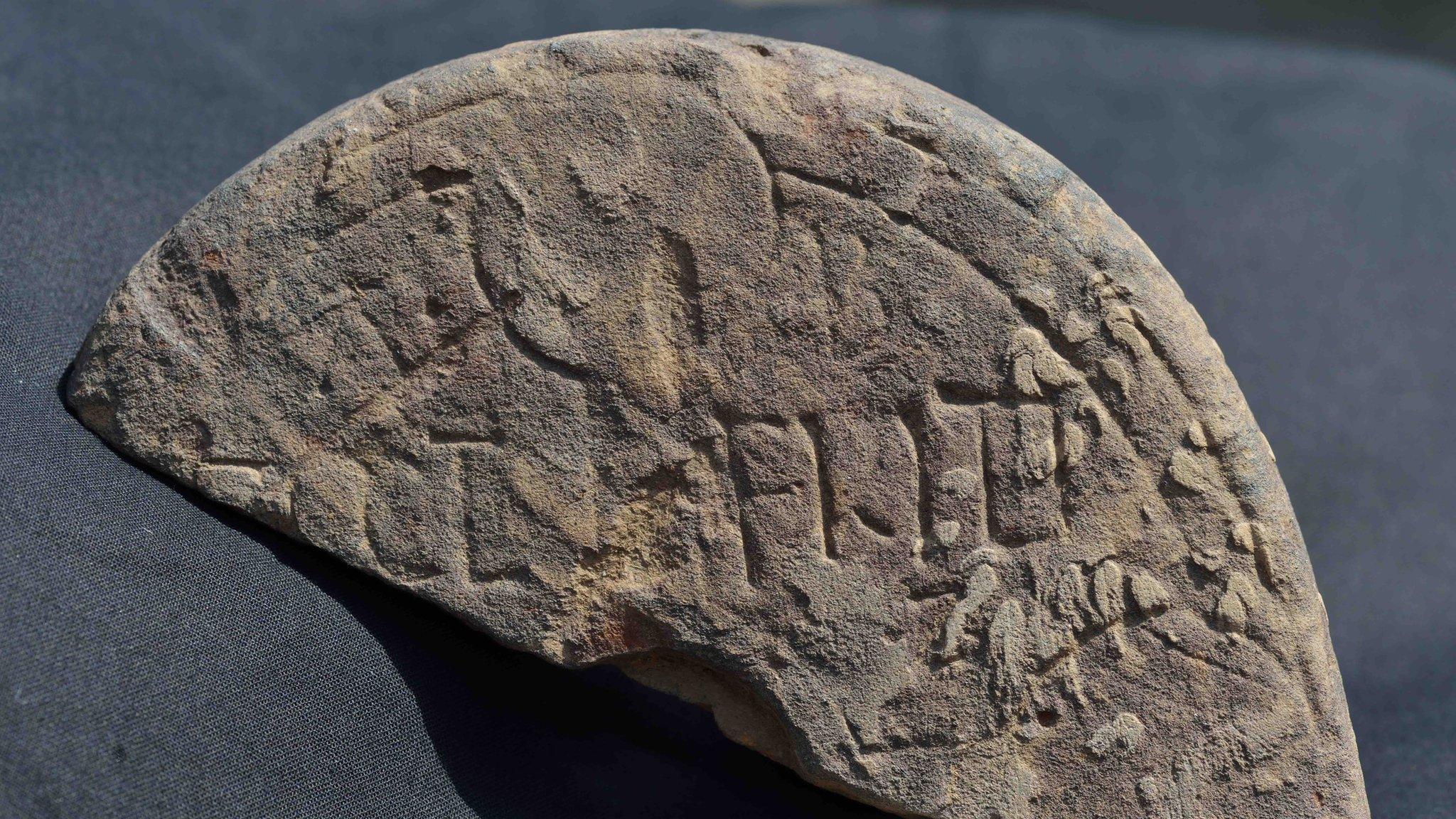Lindisfarne skeletons: Car park grave find 'could be medieval'
- Published
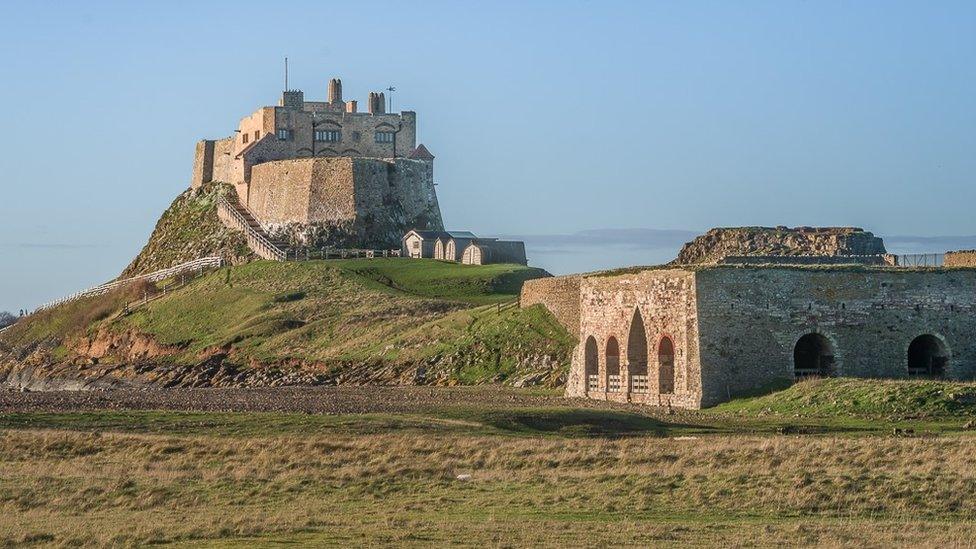
The skeletons were found during work on one of the island's car parks
Seven skeletons discovered in graves beneath a car park could be medieval, experts believe.
The remains were found during work to install a new water pipe on Holy Island, off the Northumberland coast.
Assistant county archaeologist Nick Best revealed the find to members of Ashington and Blyth local area council.
Mr Best said there had been "just enough risk" of something under the car park that the council decided to check during the work.
"It's very likely they're medieval and there's a chance they could be very early medieval," he said.
"The assumption is there is probably more."
Archaeologists plan to carbon date the bones to confirm their age.
Historic finds are not uncommon on Lindisfarne, which was home to a monastery founded in 635 by Irish monk St Aidan.
The famous Lindisfarne Gospels were produced on the island and, in 793, the monastery was raided by Vikings.
The council plans to release images of the skeletons at a later date, the Local Democracy Reporting Service said.

Follow BBC North East & Cumbria on Twitter, external, Facebook, external and Instagram, external. Send your story ideas to northeastandcumbria@bbc.co.uk, external.
Related topics
- Published17 September 2022
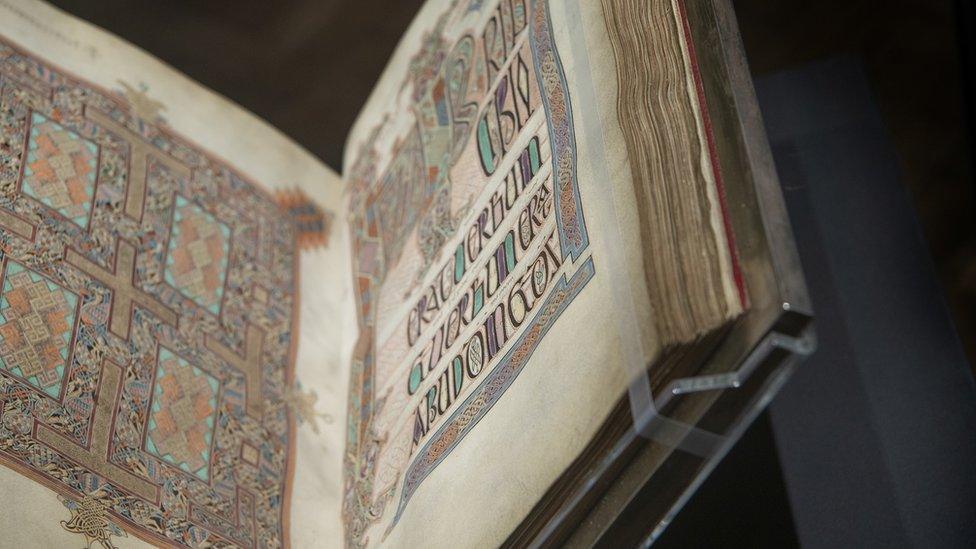
- Published13 June 2019
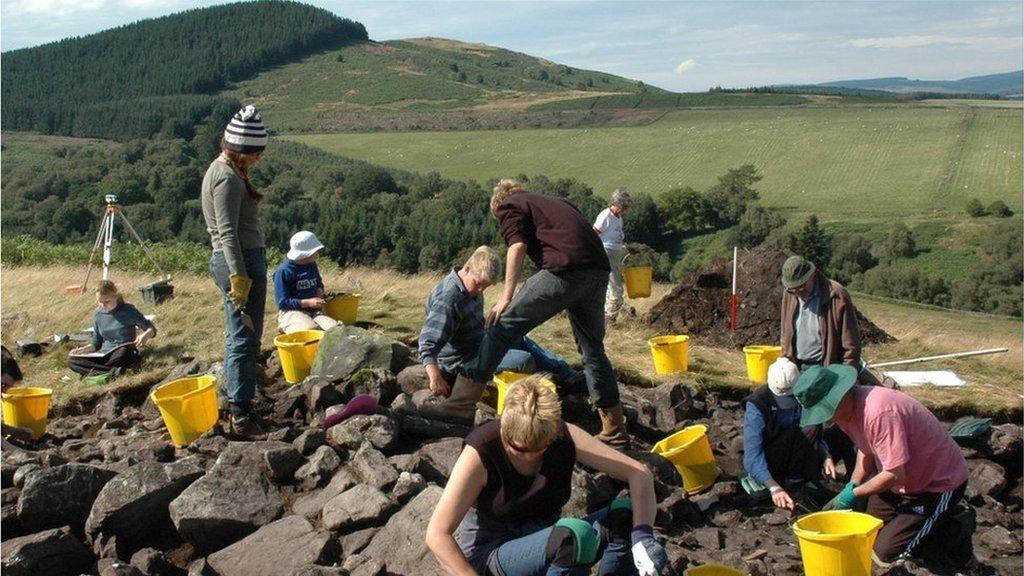
- Published21 March 2018
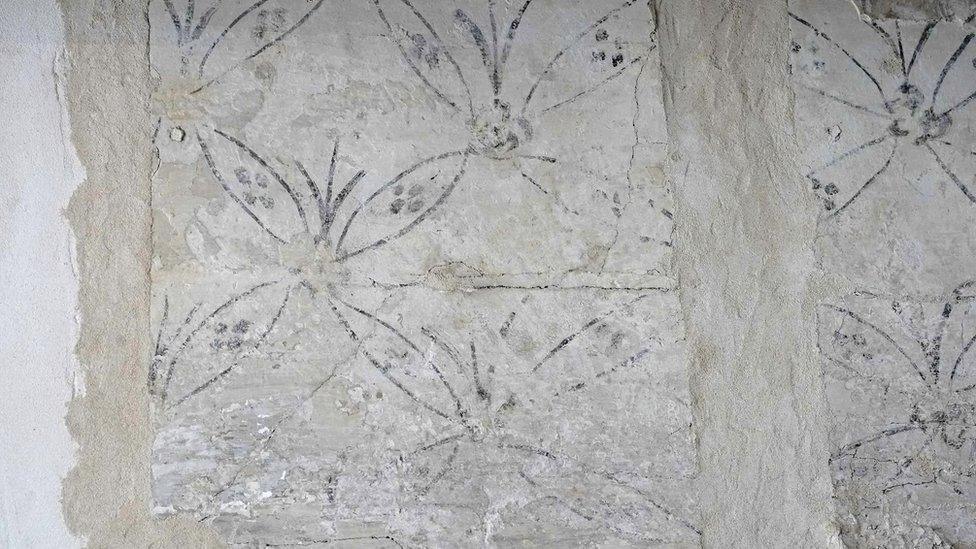
- Published5 July 2016
